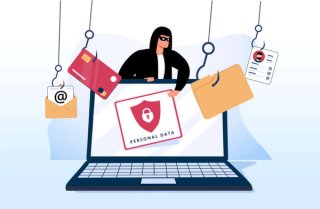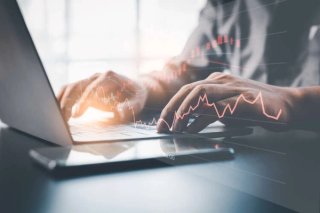World has become a busy place to accomplish all tasks at one go. You are always in search of avenues that can assist you comply with and finish all your tasks piled up for the day. Internet is one single platform that offers you with all the necessary windows to do any kind of transactions, shopping, bill payments, banking, dealing with investments, stocks, shares etc.
Any entity comes with its own blessings and flaws. So if you want to get your work done in easy steps, you might venture into the online programs and the software traps all your personal information into the system. If you’ve not secured your personal information, you might end up losing it to the hackers.
Let us identify different ways to negate any online thefts.
- While dealing with online information, it is necessary that you delve with caution. Sign up to software that promises the best safety measures.
- While browsing different websites, you might come across a few of them asking for your personal information. Not every time should you disclose your personal data, rather try to find out the reason why these sites are looking for your data.
- In order to safeguard your house belongings from thieves, you buy your own lock and key, or perhaps buy a whole new security systems. Similarly, while dealing with your personal data online, each site will offer you a separate username and password to protect it from other visitors. It is advisable that you do not share this username or password with anyone and make your online journey a smooth one.
- As nowadays you have different online accounts dedicated to the different online requirements, you also end up having more than one password. There are times, when you might forget one or the other passwords; therefore it is advisable that you make a note of these passwords in your personal diary so that it is not left open for others to access.
- Did you notice those anonymous emails with links attached to them which ask you to click on them? These links usually software to trap your personal data to unidentified individuals. So, the next time you come across such emails, beware of the links and do not click on them.
- To secure your internet experiences different antivirus and firewall software are available. Make sure you update your security software often to check the intrusion of anonymous bugs.
- You’ve saved some files on the PC or laptop, keep a weekly check on the performance of these files by running a anti-spyware or adware applications.
- When you are using internet, even at home PC, you are usually connected to a local network which is shared by other users as well. Therefore, it is important that you are using a secured network. Avoid leaving your connection open when you are not working online.
- If you’ve email accounts, you might have come across emails claiming that you’ve won a prize with extraordinary prize amounts. Again these sites are insecure sites and need to be avoided.
- Even after following all the precautionary measures, if you end up getting victimized with an identity theft, you can contact the police department (every police department of a city has its own cyber cell, dealing with cyber crimes), the online service providers etc.
World has become a busy place to accomplish all tasks at one go. You are always in search of avenues that can assist you comply with and finish all your tasks piled up for the day. Internet is one single platform that offers you with all the necessary windows to do any kind of transactions, shopping, bill payments, banking, dealing with investments, stocks, shares etc.
Any entity comes with its own blessings and flaws. So if you want to get your work done in easy steps, you might venture into the online programs and the software traps all your personal information into the system. If you’ve not secured your personal information, you might end up losing it to the hackers.
Let us identify different ways to negate any online thefts.
- While dealing with online information, it is necessary that you delve with caution. Sign up to software that promises the best safety measures.
- While browsing different websites, you might come across a few of them asking for your personal information. Not every time should you disclose your personal data, rather try to find out the reason why these sites are looking for your data.
- In order to safeguard your house belongings from thieves, you buy your own lock and key, or perhaps buy a whole new security systems. Similarly, while dealing with your personal data online, each site will offer you a separate username and password to protect it from other visitors. It is advisable that you do not share this username or password with anyone and make your online journey a smooth one.
- As nowadays you have different online accounts dedicated to the different online requirements, you also end up having more than one password. There are times, when you might forget one or the other passwords; therefore it is advisable that you make a note of these passwords in your personal diary so that it is not left open for others to access.
- Did you notice those anonymous emails with links attached to them which ask you to click on them? These links usually software to trap your personal data to unidentified individuals. So, the next time you come across such emails, beware of the links and do not click on them.
- To secure your internet experiences different antivirus and firewall software are available. Make sure you update your security software often to check the intrusion of anonymous bugs.
- You’ve saved some files on the PC or laptop, keep a weekly check on the performance of these files by running a anti-spyware or adware applications.
- When you are using internet, even at home PC, you are usually connected to a local network which is shared by other users as well. Therefore, it is important that you are using a secured network. Avoid leaving your connection open when you are not working online.
- If you’ve email accounts, you might have come across emails claiming that you’ve won a prize with extraordinary prize amounts. Again these sites are insecure sites and need to be avoided.
- Even after following all the precautionary measures, if you end up getting victimized with an identity theft, you can contact the police department (every police department of a city has its own cyber cell, dealing with cyber crimes), the online service providers etc.













